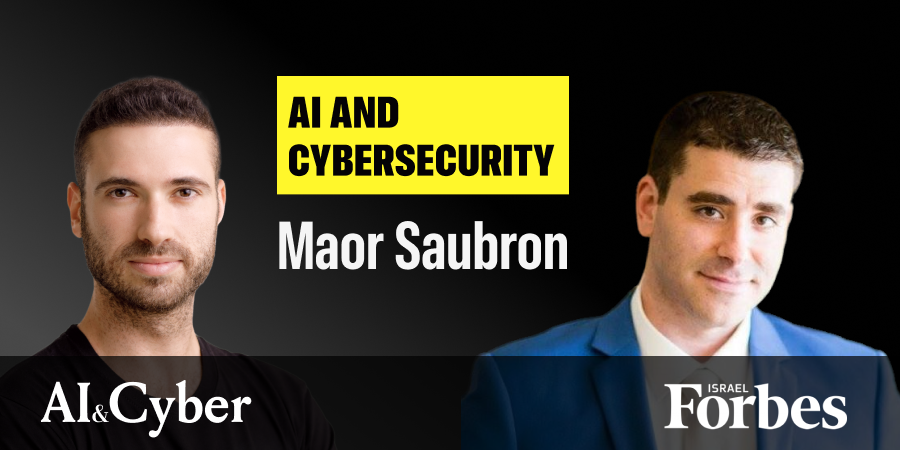In a world where cybersecurity threats evolve faster than our defenses, AI-driven risks are becoming the frontline challenge for enterprises. To gain deeper insights into this rapidly shifting landscape, I spoke with Maor Saubron, Head of Corporate Security at Amdocs, whose decades-long journey through cybersecurity offers an unparalleled view into how organizations can effectively respond to emerging threats.
Maor leads a large team of security professionals at Amdocs, a global technology giant serving critical infrastructure for telecom companies and more. His role places him at the intersection of security innovation and practical implementation, uniquely qualifying him to discuss AI’s growing impact on cybersecurity strategies.
“We are in a technological race against our attackers,” Maor emphasized during our conversation. “AI is significantly reshaping the landscape by not just creating advanced threats but also by providing revolutionary solutions.”
One key insight from Maor was the dual nature of AI – it is both an enabler of sophisticated cyber threats and a powerful tool for defense. At Amdocs, Maor described facing enormous cybersecurity challenges due to the vast scale of their operations: hundreds of thousands of servers globally, over tens of thousands of endpoints, and employees in 90 countries. With this scale, managing the risk is both complex and critical.
“We receive millions of emails per month, and a significant portion of these are spam or phishing,” Maor revealed. The sheer volume demonstrates why traditional cybersecurity methods are inadequate. To tackle such massive challenges, Maor’s team deploys multiple layers of protection and leverages AI-powered tools to analyze patterns and reduce response times dramatically.
However, despite the advanced technological frameworks, Maor pointed out a pivotal vulnerability that technology alone can’t solve – the human factor. “At the end of the day, cybersecurity incidents often start with a single employee,” he noted. “Our mission is to foster a deep security culture among employees, making them part of our defense strategy.”
This cultural shift includes comprehensive awareness programs, highly sophisticated phishing simulations, and personalized training that empower employees to recognize and respond effectively to threats. Maor believes cybersecurity must transcend technical solutions, incorporating an organization’s human element into a holistic security strategy.
When we discussed emerging threats, Maor highlighted how generative AI tools like ChatGPT have introduced new risks, especially around data leakage. Employees frequently use these tools, unintentionally exposing sensitive corporate information. Amdocs responded proactively by establishing an AI governance committee, implementing sophisticated monitoring tools, and introducing educational initiatives about responsible AI use. Maor explained, “We give employees freedom but maintain control through intelligent, automated oversight.”
I found Maor’s approach insightful and reflective of an essential evolution in cybersecurity thinking: the integration of technological innovation with strategic human-centric policies. As organizations continue to navigate this complex environment, understanding and proactively managing both AI-driven threats and human vulnerabilities will define future cybersecurity successes.
Reflecting on my conversation with Maor, it’s clear that successful cybersecurity strategies must prioritize adaptability and human engagement. Companies that empower their teams through awareness, training, and AI-driven support will build resilient defenses capable of handling tomorrow’s threats.
The path forward requires a thoughtful blend of AI technology and a deep investment in human-centric cybersecurity cultures. This balanced approach, championed by security leaders like Maor, is not just beneficial—it is imperative.
Michael Matias is the CEO and Co-Founder of Clarity, an AI-powered cybersecurity startup backed by venture capital firms including Bessemer Venture Partners and Walden Catalyst. Clarity develops advanced AI technologies protecting organizations from sophisticated phishing attacks and AI-generated social engineering threats, including deepfakes. Before founding Clarity, Matias studied Computer Science with a specialization in AI at Stanford University and led cybersecurity teams in Unit 8200 of the Israel Defense Forces. Forbes Israel recognized him early on, naming him to the exclusive 18Under18 list in 2013 and the Forbes 30Under30 list thereafter. Matias authored the book Age is Only an Int and hosts the podcast 20MinuteLeaders.





